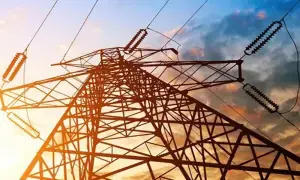Pakistan ‘leaks Rs10.2b every month’ due to Iranian diesel smuggling
2 min readThe Iranian diesel smuggling was causing Rs10.2 billion per month of revenue loss to Pakistan, Business Recorder reported while quoting sources on Monday. They claimed that the smuggled fuel has replaced 40% of domestic diesel usage here.
Corruption and a failure to implement rules and regulations by authorities, particularly the Federal Board of Revenue, had “caused damage” to the tottering economy.
The authorised Oil Marketing Companies (OMCs) have confirmed a considerable decline in legal sales, according to the Oil Gas Regulatory Authority. Last year, average consumption was between 23,000 and 30,000 tonnes from March to June.
But the average sales of diesel fell to 15,000 tonnes by mid-February. Since then, the trend has remained downward, raising concerns about the “effectiveness” of the relevant authorities, particularly FBR.
Diesel sales decreased by more than 40% compared to the previous year, said the authority. The substantial price difference had a “significant negative impact” on the formal oil industry in Balochistan and other parts of the country.
Ogra stated that the cross-border smuggling volumes are approximately 4,000 tons per day, which results in sales loss of about 120,000 tons per month or 143 million liters per month, causing an unprecedented revenue loss of Rs10.2 billion per month.
Moreover, a significant drop in the product upliftment from oil refineries was compelling them to reduce their production capacity. Local oil refineries were presently operating at 50% to 70% of the capacity, according to Ogra.
The oil industry was currently carrying diesel stocks of around “675,000 tons with coverage of about 44 days’ demand”.
Sources described the price differential between Iranian and domestically produced diesel as one of the “significant factors”. The subsidised Iranian fuel was prompting sellers to sell it in Pakistan at a lower price than domestically produced diesel.
Many believe that Pakistan has a complex tax structure that makes domestic diesel more expensive than smuggled Iranian diesel. They blamed the “porous border” and the “lack of effective border control measures” for smuggling.
The two countries share an over 900-kilometer border, which is difficult to patrol due to the rugged terrain, said sources.
Sources also blamed corruption and lack of enforcement of laws for the illegal trade. Pakistan’s fuel market was “highly regulated”, however, corrupt officials of customs and other departments have turned a blind eye to the smuggling, they added.
For the latest news, follow us on Twitter @Aaj_Urdu. We are also on Facebook, Instagram and YouTube.



























Comments are closed on this story.